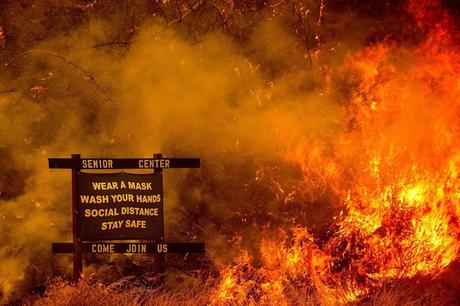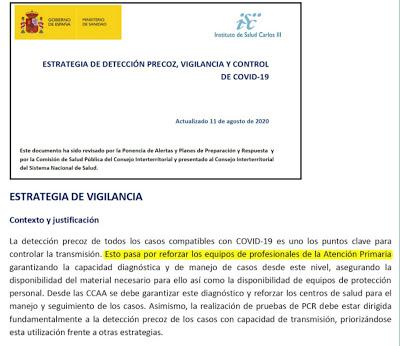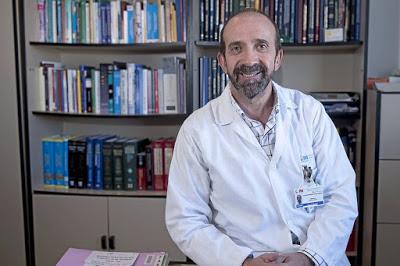 Decálogo de supervivencia para profesionales sanitarios de Atención Primaria en emergencia sanitaria.
Entramos en Emergencia Sanitaria, eso implica fuerte marejada con aumento de presión asistencial clínica y burocrática en entorno epidémico con plantillas en muchos casos mermadas y agotadas.
No es esperable recibir ni refuerzos ni ayuda significativa de la superioridad lo que implica la necesidad de autogestionarse y coordinarse lo mejor posible dentro del equipo y con la comunidad. La flexibilidad y la creatividad serán imprescindibles para poder adaptarnos a las circunstancias cambiantes.
Es verdad que la incertidumbre no hace fácil el trabajo para nadie pero también lo es que nuestra formación y el conocimiento de nuestras comunidades nos hacen referencia y servicio esencial para estas.
En momentos de crisis viene bien recordar que añadir un toque de esperanza y buen humor hacen la vida más fácil y que cosas sencillas como una sonrisa o un gesto amable tienen mucha fuerza.
1. Lo peor de la epidemia ha pasado. Paradójicamente son esperables rebrotes con más bajas laborales tanto de población como de sanitarios por la mayor capacidad actual de hacer pruebas diagnósticas. Si tu equipo y tu comunidad entra de nuevo en emergencia sanitaria va a ser fundamental volver a adaptar el servicio, como ya se ha hecho antes, preveyendo contar con menos sanitarios.
2. No estás solo, trabajas en equipo. Apóyate en tus compañeros, comunidad y resto de niveles asistenciales para dar la mejor respuesta dentro de lo posible pero no más.
3. Si te sientes sobrepasado tienes el derecho y la obligación de decirlo y visibilizarlo. Desahogarte con tu círculo personal no está reñido con pedir ayuda a tus compañeros de trabajo y responsables sanitarios.
4. Cuídate. Eso implica trabajo seguro a un ritmo que no te sea extenuante y respetar horario siempre que sea posible. Estamos en una carrera de fondo, los descansos son fundamentales y durante los mismos es básico desconectar. Dosifica las malas noticias y la presencia en redes sociales.
5. Cuando sea necesario hay que decir que NO. A gestores que solicitan burocracia o cursos de acción no prioritarios y a pacientes que solicitan cuestiones no esenciales. También a uno mismo, no te exijas más de lo prudente.
6. No será posible atender todas las peticiones de servicio que nos hagan, será imprescindible priorizar atendiendo a criterios clínicos y éticos. Primero los pacientes y luego la burocracia.
7. Mientras sea posible hay que atender a todo paciente que llega por la puerta discriminando si su petición es administrativa o clínica y demorable o no.
8. Por mucho que uno lo desee nadie tiene superpoderes. Es inviable atender de forma continua listas de pacientes mayores de 50 al día. Si tu lista de pacientes es muy superior a lo normal, o a la de otros compañeros, y no puedes con ella pide ayuda.
9. En estado de emergencia sanitaria es fundamental mantener abierta la comunicación con la comunidad (ayuntamiento, farmacias comunitarias, servicios sociales, residencias o colectividades, colegios, asociaciones, policía local...). Esa responsabilidad puede delegarse en alguien del equipo o mejor ser asumida por todos.
10. En condiciones extraordinarias, si las ausencias de personal no permiten un servicio normal cada director de centro de salud debería tener la potestad de modificar el horario de asistencia presencial (cerrando en horario de tarde por ejemplo) o si la situación es insostenible transfiriendo el servicio presencial o total a otro centro cercano. Es necesario recordar que la responsabilidad de dimensionar correctamente la plantilla y reforzarla si corresponde es de la Consejería de Sanidad.
Decálogo de supervivencia para profesionales sanitarios de Atención Primaria en emergencia sanitaria.
Entramos en Emergencia Sanitaria, eso implica fuerte marejada con aumento de presión asistencial clínica y burocrática en entorno epidémico con plantillas en muchos casos mermadas y agotadas.
No es esperable recibir ni refuerzos ni ayuda significativa de la superioridad lo que implica la necesidad de autogestionarse y coordinarse lo mejor posible dentro del equipo y con la comunidad. La flexibilidad y la creatividad serán imprescindibles para poder adaptarnos a las circunstancias cambiantes.
Es verdad que la incertidumbre no hace fácil el trabajo para nadie pero también lo es que nuestra formación y el conocimiento de nuestras comunidades nos hacen referencia y servicio esencial para estas.
En momentos de crisis viene bien recordar que añadir un toque de esperanza y buen humor hacen la vida más fácil y que cosas sencillas como una sonrisa o un gesto amable tienen mucha fuerza.
1. Lo peor de la epidemia ha pasado. Paradójicamente son esperables rebrotes con más bajas laborales tanto de población como de sanitarios por la mayor capacidad actual de hacer pruebas diagnósticas. Si tu equipo y tu comunidad entra de nuevo en emergencia sanitaria va a ser fundamental volver a adaptar el servicio, como ya se ha hecho antes, preveyendo contar con menos sanitarios.
2. No estás solo, trabajas en equipo. Apóyate en tus compañeros, comunidad y resto de niveles asistenciales para dar la mejor respuesta dentro de lo posible pero no más.
3. Si te sientes sobrepasado tienes el derecho y la obligación de decirlo y visibilizarlo. Desahogarte con tu círculo personal no está reñido con pedir ayuda a tus compañeros de trabajo y responsables sanitarios.
4. Cuídate. Eso implica trabajo seguro a un ritmo que no te sea extenuante y respetar horario siempre que sea posible. Estamos en una carrera de fondo, los descansos son fundamentales y durante los mismos es básico desconectar. Dosifica las malas noticias y la presencia en redes sociales.
5. Cuando sea necesario hay que decir que NO. A gestores que solicitan burocracia o cursos de acción no prioritarios y a pacientes que solicitan cuestiones no esenciales. También a uno mismo, no te exijas más de lo prudente.
6. No será posible atender todas las peticiones de servicio que nos hagan, será imprescindible priorizar atendiendo a criterios clínicos y éticos. Primero los pacientes y luego la burocracia.
7. Mientras sea posible hay que atender a todo paciente que llega por la puerta discriminando si su petición es administrativa o clínica y demorable o no.
8. Por mucho que uno lo desee nadie tiene superpoderes. Es inviable atender de forma continua listas de pacientes mayores de 50 al día. Si tu lista de pacientes es muy superior a lo normal, o a la de otros compañeros, y no puedes con ella pide ayuda.
9. En estado de emergencia sanitaria es fundamental mantener abierta la comunicación con la comunidad (ayuntamiento, farmacias comunitarias, servicios sociales, residencias o colectividades, colegios, asociaciones, policía local...). Esa responsabilidad puede delegarse en alguien del equipo o mejor ser asumida por todos.
10. En condiciones extraordinarias, si las ausencias de personal no permiten un servicio normal cada director de centro de salud debería tener la potestad de modificar el horario de asistencia presencial (cerrando en horario de tarde por ejemplo) o si la situación es insostenible transfiriendo el servicio presencial o total a otro centro cercano. Es necesario recordar que la responsabilidad de dimensionar correctamente la plantilla y reforzarla si corresponde es de la Consejería de Sanidad.

5 Propuestas prácticas para gestores sanitarios
3. Seguridad jurídica.
Administrativos. Permitir que puedan preguntar si la consulta es administrativa (partes de baja, recetas...) o no, y si es demorable o no. Preguntar qué motivo de consulta desea el paciente que le figure al profesional sanitario en su ordenador. Enfermería. Permitir el triaje enfermero a la puerta del centro. Permitir gestión de la demanda de problemas de salud sencillos tratables con autocuidados y medicación OTC. Médicos. Permitir teleasistencia. Permitir priorizar asistencia antes que burocracia. 4. Realización de PCR por circuitos externos a la plantilla de Atención Primaria (carpas, acceso de pacientes en coche, envío telemático de resultado al paciente). 5. Plan de contingencia ante el posible aumento de infecciones en sanitarios y aumento de bajas laborales.

